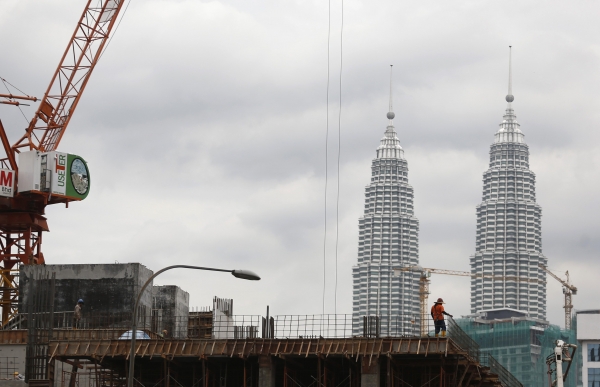KUALA LUMPUR, July 27 ― The prolonged slowdown in the residential housing sector is unlikely to lower prices as demand remains high, property experts said today.
Instead, they said residential property prices would continue climbing as data showed a 5.1 per cent year-on-year rise in transactions for the second quarter of this year.
“We are still seeing increases in house prices at around five to six per cent.
“It is still increasing although at a lower rate,” Datuk Faizan Abdul Rahman, director-general of the Valuation and Property Services, a department under the Finance Ministry, told reporters after speaking at the Malaysian Property Summit here.
“You don't usually see reversal in prices in the residential market because Malaysia has a vast number of owners… almost all Malaysians own homes,” Elvin Fernandez, organising chairman of PEPS, a group representing property firms, told the same press conference.
The Malaysian property market experienced double digit growth for almost a decade since the mid-2000s as the steady stream of foreign inflows spurred banks to ease lending, causing house prices to spiral up.
But weak global growth as well as increasing supply of both residential and commercial space have slowed the housing market rally, forcing developers to adjust and prices to stagnate.
Putrajaya also recently noted that real estate investments had dropped by 70 per cent.
Faizan said the downtrend is expected to continue for the rest of 2016 with the residential sub-sector leading the market, especially in the affordable housing segment.
PEPS also said the interest rates adjustment announced recently by Bank Negara Malaysia is unlikely to help the housing market as loan rejection rates remain high.
The loan rejection rates for the affordable housing segment (below RM500,000) stood at 30 per cent, compared to just 17 per cent in the upscale market (RM750,000 and above).
“The problem isn't interest rates,” Sarah Lim Fer Chern, Head of Equity research at Kenanga Investment Bank, said in her presentation on the residential market trajectory outlook.
“The problem is lending liquidity”.
Malaysia’s easing property sector could turn the country’s household debt — the highest in the region — into a risk to economic growth, a Fitch group subsidiary said recently.
In a report on the dangers of growing corporate and consumer debt in the region, Business Monitor International Ltd (BMI) noted that Malaysia’s household debt rose sharply since 2008 and now amounted to 89 per cent as a ratio of the country’s GDP, an increase of 25 percentage points.
Slowing growth in the value of property used for securitisation could limit consumers’ ability to obtain additional credit, and has already shown its effect on consumer sentiment, which has worsened in recent years.
Malaysia's central bank surprised markets earlier this month by cutting its key interest rate for the first time in seven years, saying the move would help the country remain on a “steady growth path.”
BNM cut the overnight policy rate (OPR) by 25 basis points to 3.00 per cent, triggering similar moves by other banks.



















